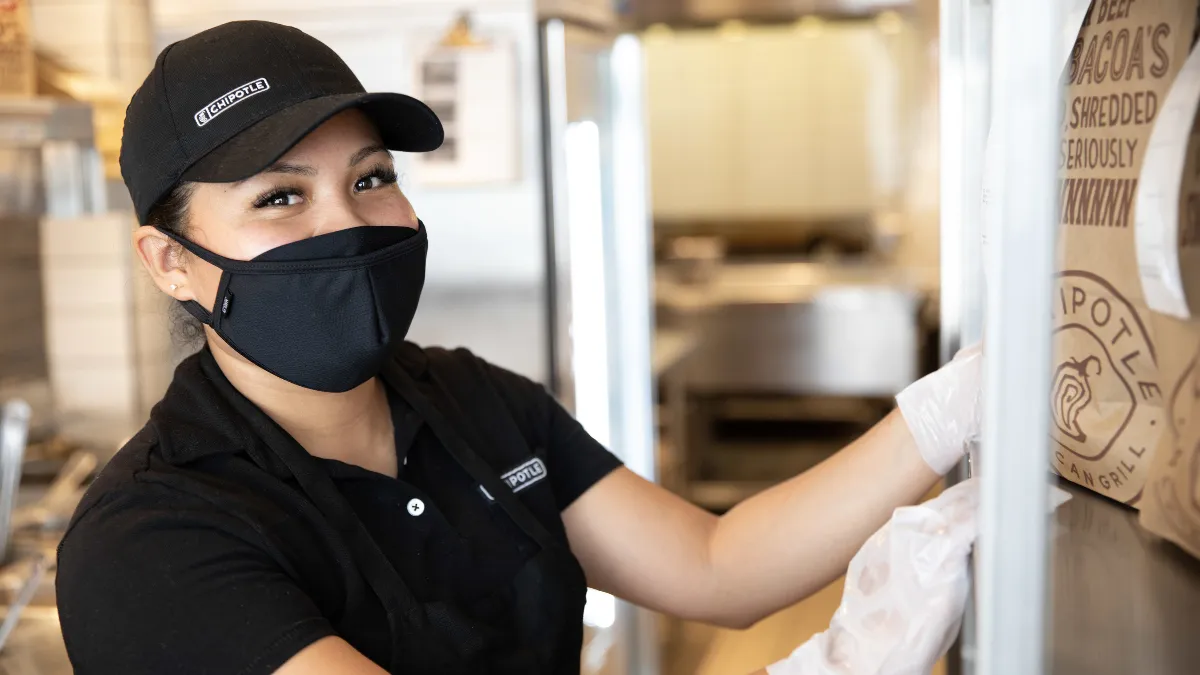Dive Brief:
- Higher wages in the restaurant industry has positively impacted customer service, according to new research from the Cornell SC Johnson College of Business. Researchers compared restaurant reviews where the minimum wage increased versus those where pay was stagnant and found an improvement in the perceived quality of service with higher wages. Higher wages also led to a reduction in negative reviews about workers’ friendliness and courtesy.
- In the paper, Cornell Professor Vrinda Kadiyali said, “For a particular class of restaurants, consumers benefit from an increase in [minimum] wage because employees are motivated and owners are motivated to provide better service. The discussion around minimum wage has been all around how prices will go up and consumers will be worse off. But we find, in our research, that consumers are happier with the overall quality.”
- This research comes as the industry grapples with significant labor pressures. The National Restaurant Association’s mid-year State of the Industry report, released Tuesday, shows that eating and drinking places are still nearly 1 million jobs below pre-pandemic employment levels. The sector has one of the highest levels of unfilled job openings of any industry, and 75% of operators said recruitment and retainment is their top challenge.
Dive Insight:
In an attempt to solve the current labor pressures, restaurants across the industry have been increasing their wages. The Washington Post reports that the past three months have marked some of the fastest wage growth since the early 1980s and that average pay in the restaurant industry in May was above $15 an hour for the first time.
Further, Black Box Intelligence and Snagajob data finds that wages jumped by 10% in the second quarter, the biggest increase in years.
Those higher wages have been facilitated in part from menu price increases, which averaged about 4% through June 2021, according to the NRA report.
Chains across segments have been raising their prices throughout the past year, not just to contend with rising labor wages but also higher costs of goods. Business Insider reported that about 17 out of 24 restaurant chains have increased prices, with the quick-service segment making the largest increases, including 10% at Taco Bell, 8% at McDonald’s and 4% at Chipotle.
Still, consumers don’t seem to be deterred by such increases. Taco Bell’s visits were up by 25% in the first part of this year, for example, while McDonald’s foot traffic is up by double digits.
That said, larger chains are likely better positioned to pass costs onto the consumer because of brand equity.
Cornell researchers, however, believe changes in minimum wage can especially affect consumer experiences at independent restaurants, which can control experiences and quality more than national chains.
Those establishments may have more leverage in raising their prices now as well, as most consumers have even higher customer service expectations than they did prior to the pandemic. Further, one in four hospitality customers say they are willing to pay up to 31% more for “excellent customer service,” according to Forbes.com, and that number increases to 70% if convenience is incorporated. That means diners are more than likely to be less price sensitive in exchange for a better restaurant experience.
A recent study from JLL’s Big Red Rooster reiterates this, showing that a majority of consumers want an increase in staffing during peak traffic times so they can receive a more positive experience.











